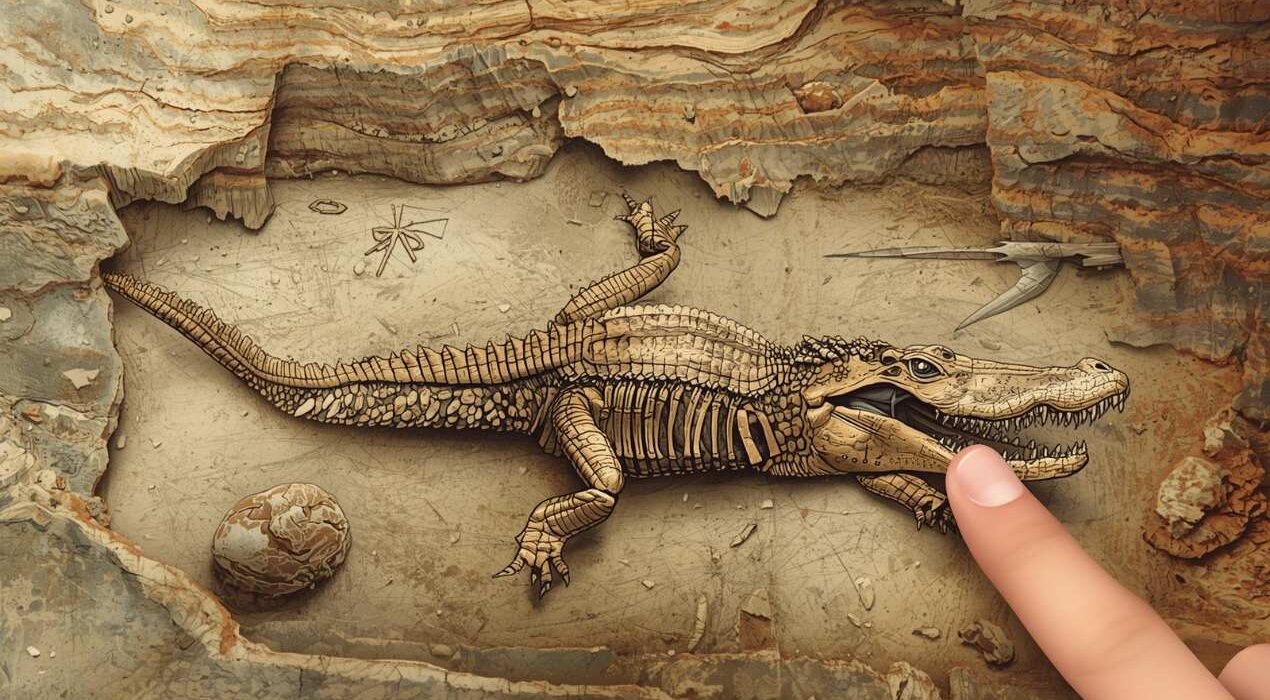A fossil the size of a pinkie finger has revealed a brand-new species of ancient crocodyliform in Montana. Discovered by Harrison Allen, then an undergraduate at Montana State University, the 95-million-year-old specimen has been formally named Thikarisuchus xenodentes.
Nicknamed “Elton” after Elton John’s Crocodile Rock, the fossil belonged to a juvenile crocodyliform just two feet long. Unlike most crocodile relatives, which were semi-aquatic carnivores, Elton lived on land and had specialized teeth suited for an omnivorous diet.
Allen first spotted the unusual fossil fragment during a 2021 dig in the Blackleaf Formation. “I brought it to Dr. Varricchio and knew it must be something good, because he said, ‘Take me to where you found this,’” recalled Allen. The find set him on a path that has since launched his career in paleontology.
Dozens of fragile bones—including parts of the skull, jaw, and limbs—were later recovered and digitally reconstructed with CT scans. Professor David Varricchio noted: “It had so much visible anatomy to explore, and he could see it was a tiny, tiny croc skull, fully articulated and preserved – it was a special thing.”
The discovery also sheds light on fossil preservation. Evidence suggests Elton was entombed in a burrow, adding to patterns seen in similar Cretaceous sites. Scientists concluded the new species belongs to a family of small, land-dwelling crocodyliforms unique to North America.
For Allen, who is now pursuing a Ph.D. at Stony Brook University, the project was transformative. “The majority of diversity of crocodyliforms is in the past. There were fully marine crocs, fully terrestrial crocs, herbivorous crocs, omnivores and some that cracked shells,” he said. “That amazed me and made me want to get into this more specific realm of paleontology.”
Student’s Tiny Fossil Find Unlocks a New Ancient Croc Species in Montana






